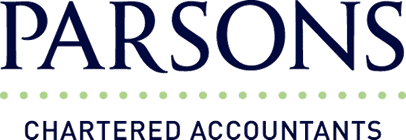
Audit Reform – What does ISQM 1 Mean for my business?
With the latest government audit reform having come into effect in December 2022, we take a quick look at ISQM 1, the changes made to UK audit regulations and how these may impact your business.
Changes to corporate audit regulations were announced in May 2022, largely in response to some high-profile auditing scandals. On top of restoring confidence in the industry, this audit reform plan was also focused on trying to alleviate some of the reporting burdens that came with our membership to the EU – now a thing of the past – in order to encourage investment and instil a more agile approach to suit businesses in the UK.
The reasons behind the latest audit reform
While penalties levied against accountancy firms aren’t new, 2022 saw a record amount of fines issued due to audit failures – with figures standing at a huge £46.5m, and over half of this accrued by audit, tax and advisory network KPMG alone. The organisation claimed that the issues were down to poor conduct at one of their outsourcers, now-liquidated UK firm, Carillion – whose collapse had widespread repercussions for both their customers and their staff.
Other recent UK audit scandals to hit the headlines have included PWC’s £18m fine for the incompetent auditing of BT whose Italian operation was found to have committed fraud, plus the shocking announcement from the Financial Reporting Council that 29% of audits conducted by the seven biggest providers didn’t meet the basic standards required by audit regulations.
With the unhealthy industry dominance of the ‘Big Four’ auditing firms, the new audit reforms intend to level the playing field, in order to minimise the risk of something similar happening in the future.
How will your auditor’s working practices change to meet ISQM 1 requirements?
In response to the falling standards, recent audit reform has seen a move from the previous ISQC 1 regulations, to ISQM 1. While the full audit regulations are obviously quite detailed, some of the key changes that auditors will need to make in order to comply include:
- Introducing a risk assessment process
- More focus on quality management and automation (software, analytics etc.)
- Better training and methodology
- New documentation requirements
- Monitoring and remediation adjustments
You, Parsons and the new audit regulations
As a professional provider of financial auditing services, here at Parsons we have made and will continue to make changes, in order to ensure our complete compliance with the new audit regulations. These include:
- Increasing the size of our audit team to ensure assignments are suitably resourced – you might also see more members of our team collaborating on your audit.
- Adjustments across our non-audit services teams on audits, including accounts and tax teams to maintain independence.
- Additional, regular audit training for our teams to provide premium technical knowledge of the rules and technology used to process your audit.
- Cold-file audit reviews. These third party reviews of our processes and work will ensure compliance and accuracy, as well as providing us with meaningful feedback to further improve our procedures to meet latest standards.
- Different, or additional, questions and information requests when we process your audit in order to meet the latest compliance standards and recommendations.
- Requests for face-to-face meetings as recommended best practice by our regulators.
If you’d like more information regarding the ISQM 1 audit regulations or to learn more about how this latest audit reform will impact the process for your business, please contact our experts.







